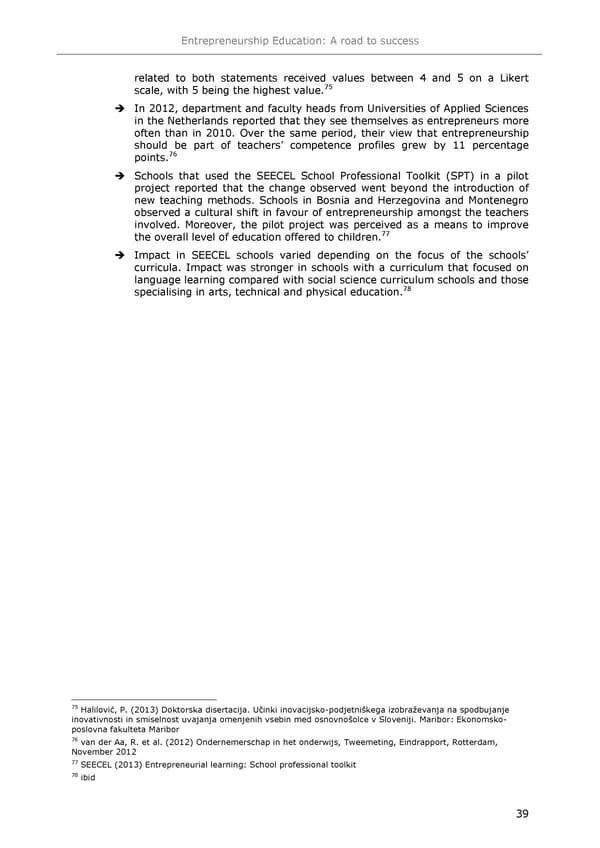Entrepreneurship Education: A road to success related to both statements received values between 4 and 5 on a Likert scale, with 5 being the highest value.75 In 2012, department and faculty heads from Universities of Applied Sciences in the Netherlands reported that they see themselves as entrepreneurs more often than in 2010. Over the same period, their view that entrepreneurship should be part of teachers9 competence profiles grew by 11 percentage 76 points. Schools that used the SEECEL School Professional Toolkit (SPT) in a pilot project reported that the change observed went beyond the introduction of new teaching methods. Schools in Bosnia and Herzegovina and Montenegro observed a cultural shift in favour of entrepreneurship amongst the teachers involved. Moreover, the pilot project was perceived as a means to improve 77 the overall level of education offered to children. Impact in SEECEL schools varied depending on the focus of the schools9 curricula. Impact was stronger in schools with a curriculum that focused on language learning compared with social science curriculum schools and those specialising in arts, technical and physical education.78 75 Halilović, P. (2013) Doktorska disertacija. Učinki inovacijsko-podjetniškega izobraževanja na spodbujanje inovativnosti in smiselnost uvajanja omenjenih vsebin med osnovnošolce v Sloveniji. Maribor: Ekonomsko- poslovna fakulteta Maribor 76 van der Aa, R. et al. (2012) Ondernemerschap in het onderwijs, Tweemeting, Eindrapport, Rotterdam, November 2012 77 SEECEL (2013) Entrepreneurial learning: School professional toolkit 78 ibid 39
 Entrepreneurship Education Page 42 Page 44
Entrepreneurship Education Page 42 Page 44